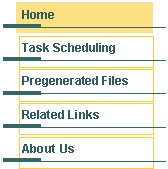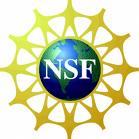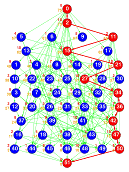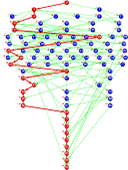|
Parallel Task Scheduling |

|
EEDAG Scheduling Code |
|
This webpage provides a free service to researchers working on parallel computing. The software provided will build a Directed Acyclic Graph (DAG) to support the scheduling of parallel tasks with dependency on multicore systems. The DAGs are built from Standard Task Graph (STG) files. Two examples of Task Graphs (TGs) are pictured below.
This simulator is provided to the computing society for free and it can only be used for non-commercial purposes. Quick links: Source code for program, executable, pregenerated examples, algorithm, and more information. Please cite one or more of the following published papers when using this simulator or making derivative works of this simulator. 1. Z.L. Zong, J. Bush, R. Ge, X. Li, Z.Z. Chen, "Energy-Efficient Scheduling for Multicore Systems with Bounded Resources", In Proceedings of the IEEE International Conference on Green Computing and Communications (GreenCom'13), Beijing, Aug. 2013. 2. Z. L. Zong, A. Manzanares, X. J. Ruan, and X. Qin, "EAD and PEBD: Two Energy-Aware Duplication Scheduling Algorithms for Parallel Tasks on Homogeneous Clusters", IEEE Transactions on Computers, vol. 60, no. 3, pp. 360-374, Mar. 2011. 3. Z. L. Zong, X. Qin, M. Nijim, X. J. Ruan, K. Bellam, and M. Alghamdi, "Energy-Efficient Scheduling for Parallel Applications Running on Heterogeneous Clusters", In Proceedings of the International Conference on Parallel Processing (ICPP'07), Xi'an, China, Sept. 2007. 4. Z. L. Zong, A. Manzanares, B. Stinar, and X. Qin, "Energy-Efficient Duplication Strategies for Scheduling Precedence Constrained Parallel Tasks on Clusters", In Proceedings of the International Conference on Cluster Computing (Cluster'06), Barcelona, Spain, Sept. 2006. Acknowledgement: This work is supported by the National Science Foundation under Grants No. CNS-1118043, CNS-1116691, and CNS-1304969. |


